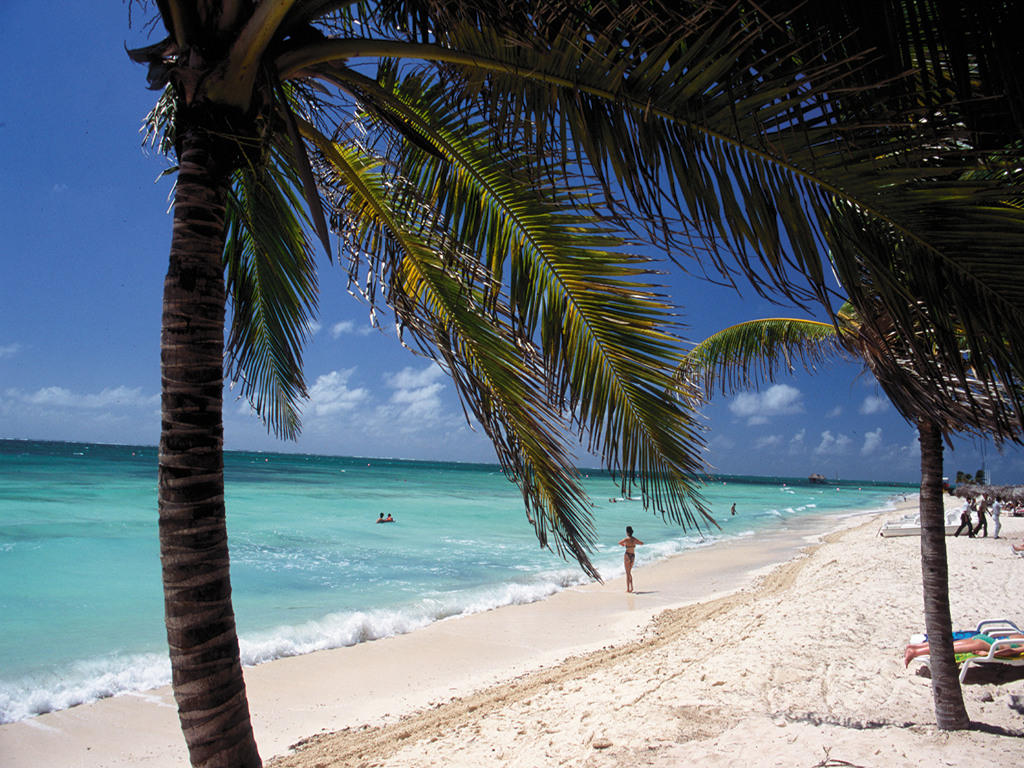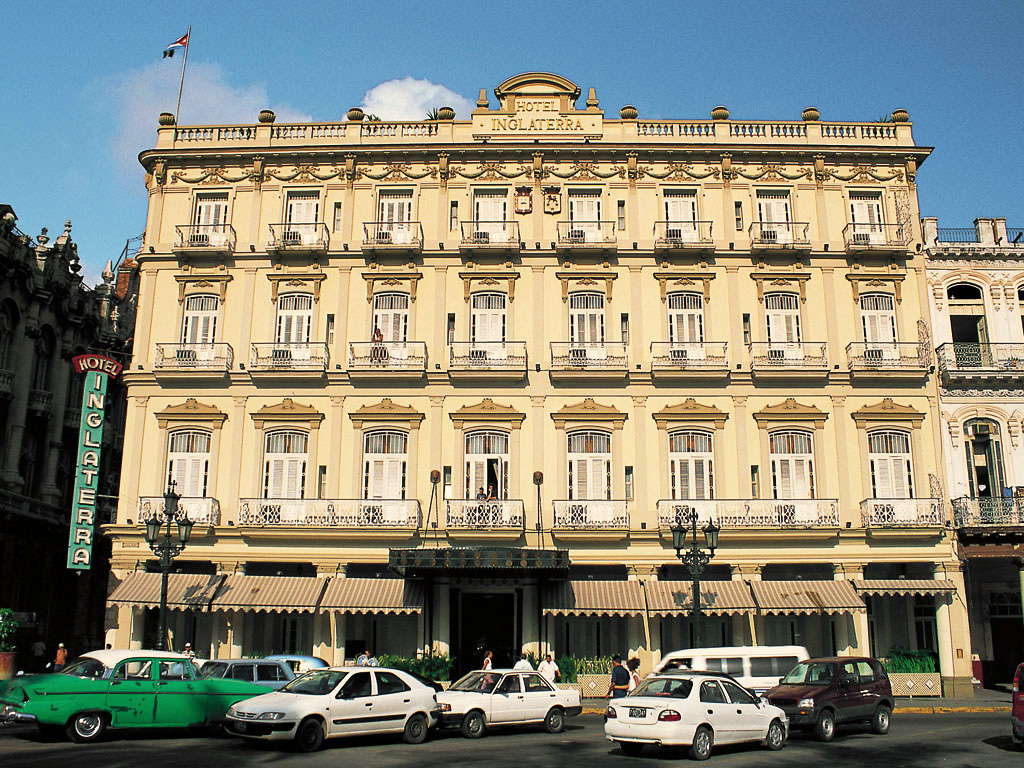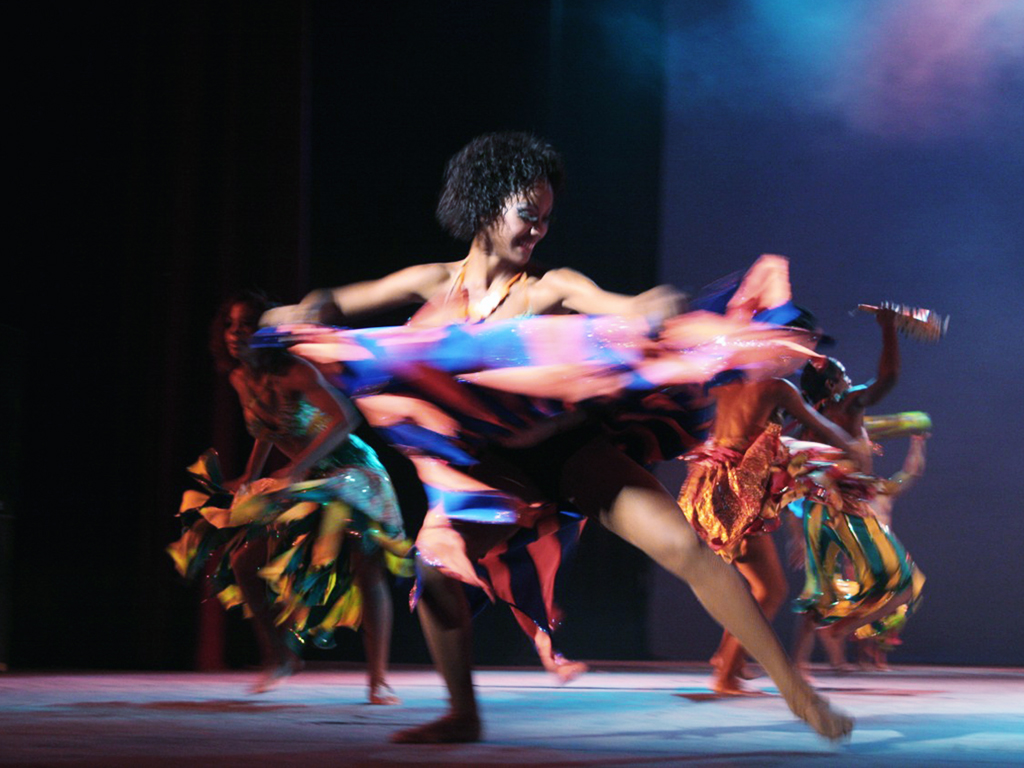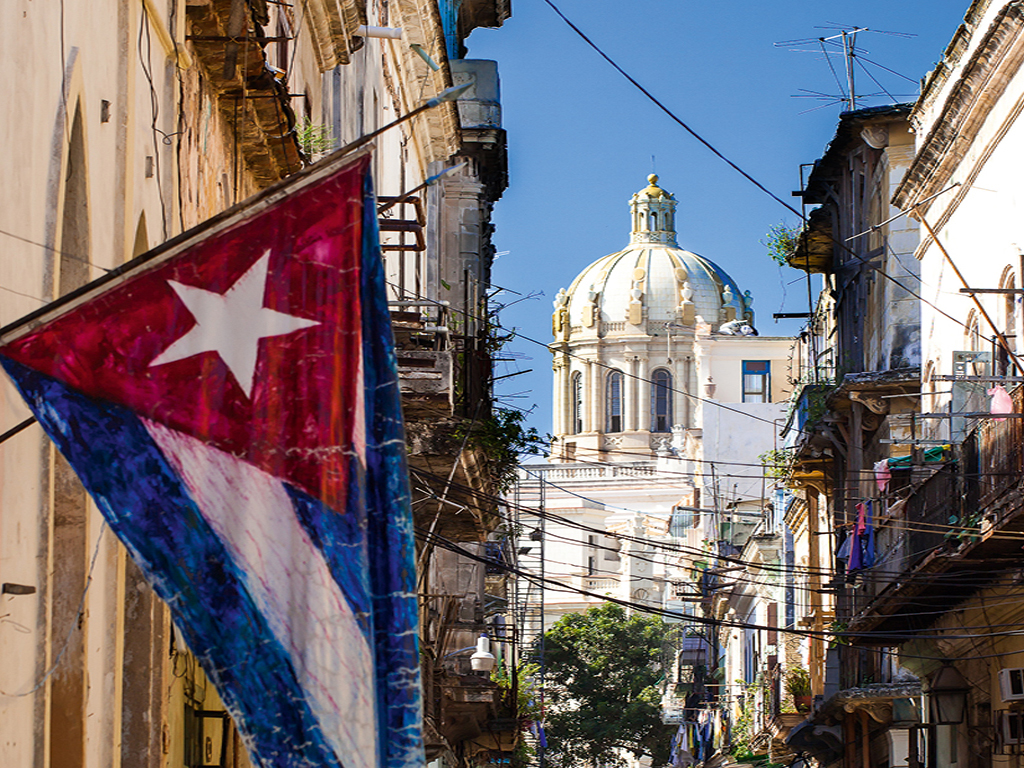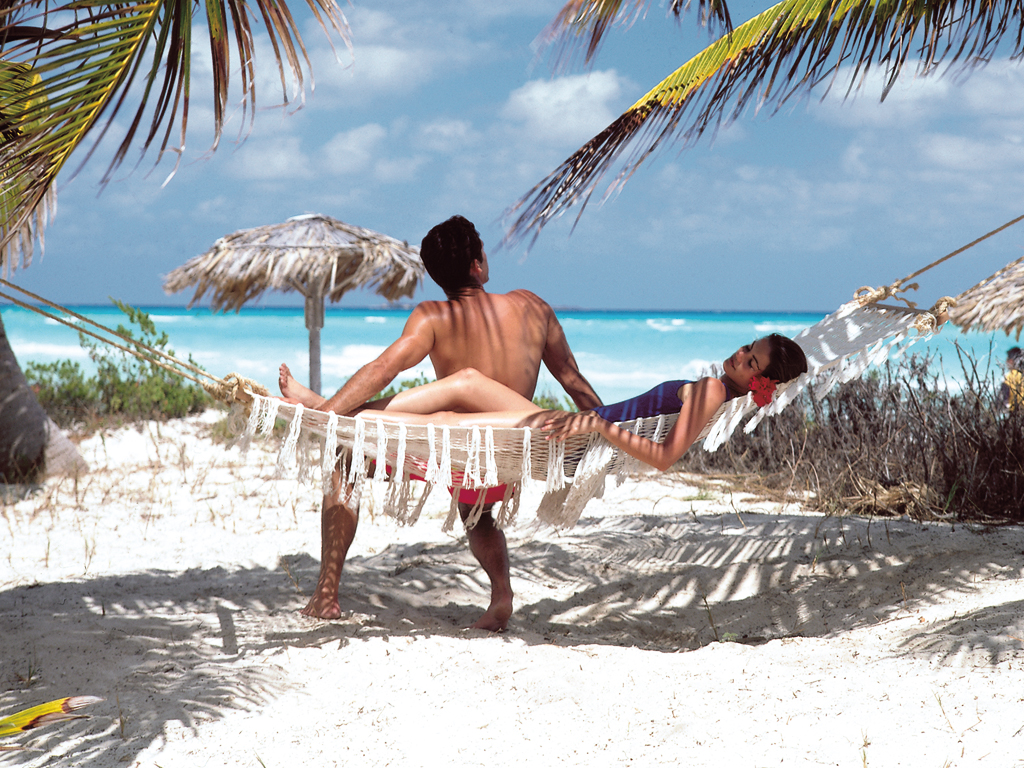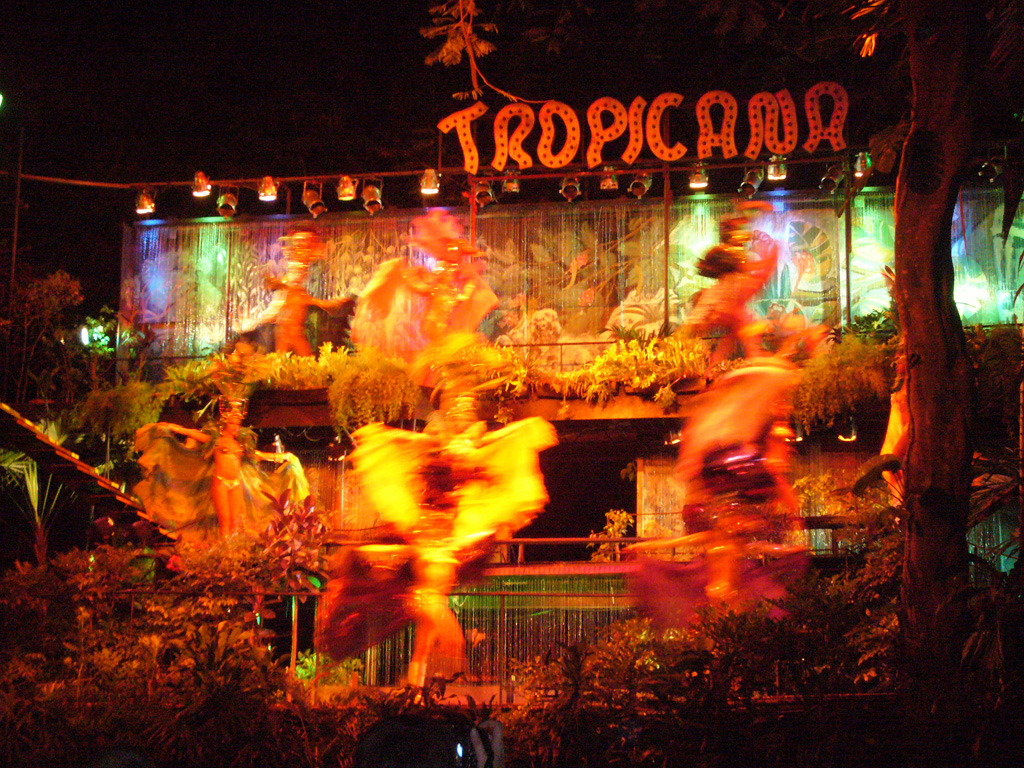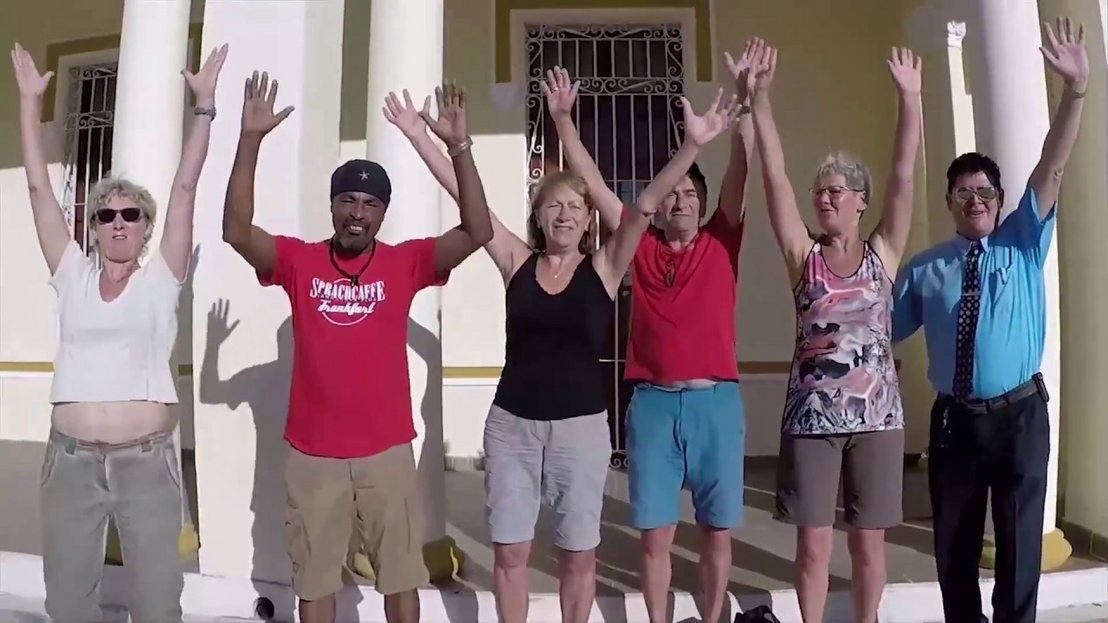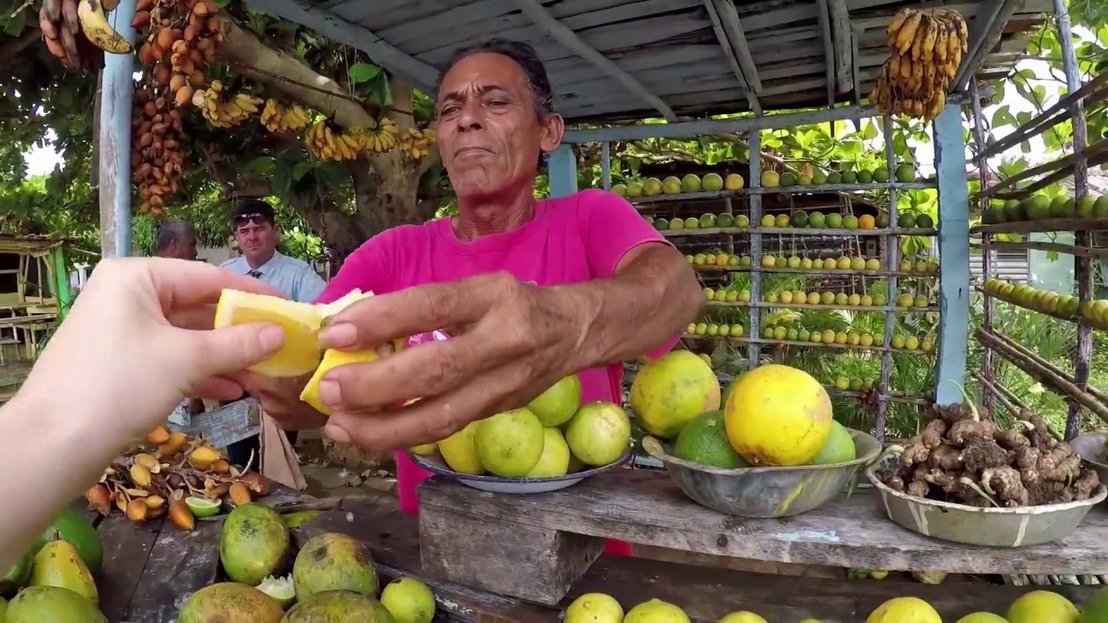☕Take advantage of our Espresso Discount! Save up to €400 on your language trip! ☕
💸 Enjoy our incredible discounts and benefits. Start saving now! 💰
Cuba travel guide
Quick facts
Form of state: Republic
Citizen count: 11.238.317
Police emergency calls: 106
Emergency fire engine calls: 105
Country code for calls: +53
Circuitry voltage: 110 or 220 Volts
Witness this breath-taking Caribbean island surrounded by beautiful beaches and nature reserves.Learn Spanish in the fascinating city of Havana. This tropical country is known for its energetic locals, authentic cuisine and a romantic musical scene that is famous for captivating its visitor. Cuba is the ideal destination to learn the romantic Spanish language with passion and energy fueling every aspect of this stunning Caribbean island.
The Cuban history, culture and heritage will enthral every visitor while spoiling them for choice, with an endless number of tourist attractions to visit. Allow the unique rhythm of Havana to inspire you while you learn a lifelong language skill, create unforgettable memories and meet friends who will experience this incredible journey with you. Spanish courses in Cuba are becoming a popular choice among students when deciding where to learn Spanish. Many people jump at the opportunity to see this fascinating Caribbean island; and improve their ability to speak Spanish. But don't just take our word for it, experience all of this for yourself during one of our Spanish courses in Cuba!The home of passionate rhythms, rum, cigars and classic cars offers a diverse tropical landscape that thrives in a wonderful, subtropical climate. The many charming towns and cities filled with colonial architecture, bars, restaurants and museums, boast a rich artistic and cultural heritage.
This Caribbean island offers a wide diversity of cultures; music and dance being major factors. Mambo, Rumba, Salsa or the Cha Cha Cha are just some of the many popular local dances. Cuba is also known for its literary enthusiasts which holds a particular significance to Cubans. Students are encouraged to spend their free time absorbing the culture and exploring the wonders of their surroundings. Our students are also awarded with endless opportunities to hear the Spanish language in its natural everyday use in an environment which fuels a passion for everything Spanish. The welcoming Cuban community coupled with Havana’s exquisite landscapes will leave every student inspired to learn the language and embrace the laid-back lifestyle.
General information
Geography
Time difference
Climate and travel seasons
Climate chart for Havana (in degrees Celsius)
| Jan | Feb | Mär | Apr | Mai | Jun | Jul | Aug | Sep | Okt | Nov | Dez | |
|---|---|---|---|---|---|---|---|---|---|---|---|---|
|
|
26° | 27° | 28° | 29° | 30° | 31° | 31° | 32° | 31° | 29° | 27° | 27° |
|
|
18° | 19° | 19 | 21° | 22° | 23° | 24° | 24° | 24° | 23° | 21° | 20° |
|
|
6hrs | 7hrs | 8hrs | 9hrs | 9hrs | 8hrs | 9hrs | 8hrs | 7hrs | 6hrs | 5hrs | 5hrs |
|
|
25° | 24° | 25° | 26° | 27° | 27° | 28° | 28° | 28° | 27° | 27° | 27° |
|
|
6 | 5 | 4 | 5 | 7 | 10 | 9 | 10 | 11 | 11 | 7 | 6 |
Preparing your journey
Entry requirements
Currency
Health care
Packing checklist
(German text)
Damit Sie perfekt vorbereitet sind, haben wir eine Packliste für Sie zusammengestellt.
Society and every day life
Religion
Until 1992 Cuba was declared an atheist state, however it became a mostly catholic nation due to constitutional amendment allowing believers to be politically active. The most present religions are Catholicism and the Santeria, many Cuban Protestant communities have also emerged in recent times. The Jehovah's Witnesses are also strongly represented.
Politics
Local language & communication
Public transport
Culture and history
History
Culture
The mixture of native, African and European influences in Cuba gives this island a lively culture that is known worldwide! The introduction of communism to the country in 1959 has had a big impact on the people – both positive and negative. Cuba’s history is reflected in its food, language, art, and, most of all, its music. All year round, it seems as if bands are everywhere in Havana. The main musical form is called son, which combines lively rhythms with classical guitar. Unlike most countries in Latin America, Cuba’s favourite sport is not football – it’s actually baseball! Baseball came to Cuba from the United States in the 1860s. Many international baseball stars have come from Cuba, and the Cuban national team is one of the best in the world.
Festivals
Holidays
Food
Useful information
Common tourist mistakes
Hints and tips
Short dictionary
| English | Español |
|---|---|
| Hello! | ¡Hola! |
| Good morning! | ¡Buenos días! |
| Good afternoon! | ¡Buenas tardes! |
| Welcome! | ¡Bienvenido/a! |
| How are you? | ¿Como estas? |
| Good, thank you! | ¡Bien, gracias! |
| And you? | ¿Y tu? |
| (Many) Thanks! | ¡(Muchas) gracias! |
| You're welcome/No problem! | ¡Con mucho gusto! |
| Good night! | ¡Buenas noches! |
| See you later! | ¡Hasta más tarde! |
| Bye! | ¡Adios! |
| I am lost | Estoy perdida |
| Do you need help? | ¿Puedo ayudarte o necesitas ayuda? |
| Could you help me? | ¿Disculpe, puede ayudarme? |
| Where is the bathroom/the pharmacy? | ¿Donde esta el baño/la farmacia? |
| Do you speak (English)? | ¿Disculpe, usted habla (inglés)? |
| My name is … | Me llamo … |

